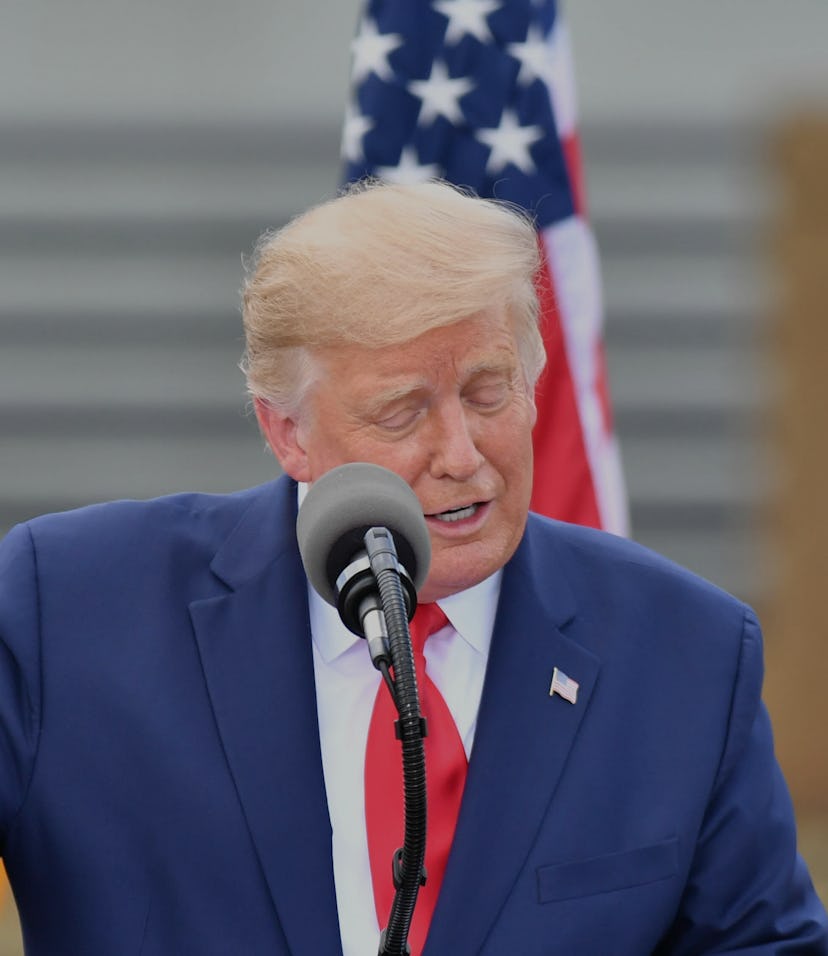Culture
Facebook will sell misleading political ads until a week before the election
The company announced today some new measures to "protect democracy." They're unlikely to do much of that at all.

Facebook announced this morning that it will not allow the creation of new political ads during the last week of the 2020 U.S. Presidential Election, as well as other measures to “secure the integrity of the U.S. elections.” CEO Mark Zuckerberg also published a statement on his Facebook page about the new rules.
“With Covid-19 affecting communities across the country, I’m concerned about the challenges people could face when voting,” Zuckerberg writes. “I’m also worried that with our nation so divided and election results potentially taking days or even weeks to be finalized, there could be an increased risk of civil unrest across the country.”
Facebook’s action here is incredibly minimal. The company isn’t banning political ads during the last week of the election; it’s just choosing not to accept new ones. Politicians will be allowed to purchase ad space for the next two months — even if those ads contain misinformation or blatant lies — as long as they do so before October 27. Those ads will still run during the last week of the election.
If Facebook is trying to “protect” democracy, it’s doing a laughable job of it at best. Its new policies have the same problems they always have — just with a fresh coat of paint.
The details — Facebook’s announcement includes a few new measures the company is taking in an attempt to preempt election-based chaos on its platforms.
The company says it will remove posts that claim people will get COVID-19 if they vote. It will also attach a link to “authoritative information” about the virus to posts that attempt to use COVID-19 as discouragement from voting.
Facebook is also planning to attach an information label to any content that seeks to delegitimize the outcome of the election. If the company follows through on this, it will be a very welcome change from the way it’s treated misinformation about mail-in voting in the past.
Lastly, Facebook says it will add a label to any post that attempts to declare victory in the election before final results have been announced. That label will link to official results from Reuters and the National Election Pool.
A bad attempt to save face — Facebook’s announcement is less a statement about banning political ads and more a doubling-down on its allowance for those ads. Facebook is saying yes, we will allow politicians to purchase ad space through election day, as long as they don’t complete the actual transaction during that last week.
In his post, Zuckerberg specifies that, like all advertisements published on Facebook, these ads will be published in the company’s Ads Library “so that anyone, including fact-checkers and journalists, can scrutinize them.” The problem with this reactive methodology is that, by the time third parties have had the chance to locate and report an ad with misinformation, it's already been served to people — potentially huge numbers of them.
Facebook is well aware of its shortcomings. The company knows it’s a hotbed of misinformation, hate speech, and explicit calls for violence — but instead of taking real action on its long-standing issues, the company would prefer to pose a short-term solution that doesn’t do much at all.
If Facebook doesn’t adopt a more proactive model of fact-checking and, more largely, for moderation, it’s doomed to simply repeat its history on and on forever. Facebook’s new actions will not mitigate much — if any — harm. They’re an attempt by Facebook to make it look like the company is taking a stand. In reality, it's business as usual.